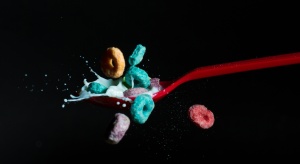Word Watch: Track-a-holism

Credit: Viacheslav Iakobchuk/Adobe Stock
Track-a-holism (or trackaholism, whose adherents or victims are known as track-a-holics or trackaholics) is the latest addition to the lexicon noted by Canada’s Word Spy, Paul McFedries.
Word Watch: verbicaine

Credit: megaflopp/Adobe Stock
Canadian Word Spy Paul McFedries has flagged”verbicaine” as a new term that has entered the medical lexicon.
Word Watch: almost alcoholic
Tip o’ the hat once again to Paul McFedries, Canada’s Word Spy for noting the rise in the use of ‘almost alcoholic.’
He defines the term as “a person who exhibits some of the symptoms or behaviors associated with alcoholism, but who is not a full-blown alcoholic.”
He cites the earliest use in a New York Daily News story in which then-U.S. President George W. Bush was described by an adviser “a recovering alcoholic or almost-alcoholic,” which led him to “really [believe] in the power of faith to get you through times of trouble.” Continue reading →
Word Watch: fruitloopery
Fruitloopery — the improper or ignorant use of scientific or technical language to make a false or impossible claim seem more believable — is the latest addition to the lexicon by Canada’s Word Spy, Paul McFedries.
It comes from the use of the term “fruit loop” as a “whimsical way of describing someone who is a bit crazy, scatterbrained, or weird,” which has been used in that sense since at least 1982, McFedries wrote on his WordSpy website. McFedries says it “likely” comes from the Kellogg’s cereal Froot Loops (but I ask you: where else would it have come from?), with a boost from associations with the word loopy, meaning crazy or bizarre. Continue reading →
Word Watch: Ebolaphobia
Canada’s Word Spy Paul McFedries has flagged “Ebolaphobia” as a new entry to the lexicon.
Perhaps no surprise there, given the dominance of Ebola in the news, but what’s strange about this entrant is that it’s practically brand new. Like the compilers of the Oxford English Dictionary, McFedries logs citations for the words he spies — and in this case, the earliest citation is mere months ago.
According to McFedries, the first use was on 31 July on the website HPANWO Voice which is described as a forum for the HPANWO to review global news and trends. Continue reading →
Word Watch: Katie Couric effect
 When TV host Katie Couric had a live, on-air colonoscopy on the Today Show in 2000, and campaigned for colon cancer screening after the death of her husband two years before that, there was a pronounced increase in colonoscopies among Americans termed the “Katie Couric effect.”
When TV host Katie Couric had a live, on-air colonoscopy on the Today Show in 2000, and campaigned for colon cancer screening after the death of her husband two years before that, there was a pronounced increase in colonoscopies among Americans termed the “Katie Couric effect.”Now, Canadian Word Spy Paul McFedries, who tracks new words and phrases as they enter the language, has added “Kate Couric effect” (also simply “Couric effect”) on his Word Spy website.~TM
Word Watch: bikini medicine
 Canada’s “word spy” Paul McFedries has been busy this week, posting yet another medically-related new phrase: “bikini medicine.”
Canada’s “word spy” Paul McFedries has been busy this week, posting yet another medically-related new phrase: “bikini medicine.”
McFedries defines this as “medical practice, research, and funding that focuses solely on the female breasts and reproductive system.” Continue reading →
Word Watch: sitting disease
 This week, Canadian word-watcher (actually, “word spy”) Paul McFedries flagged “sitting disease” as a new phrase that has entered the lexicon.
This week, Canadian word-watcher (actually, “word spy”) Paul McFedries flagged “sitting disease” as a new phrase that has entered the lexicon.
“Well, of course,” you may say, “the news has been full of ‘sitting disease’ in the last few weeks.”
However, McFedries found the earliest use of the phrase in a USA Today article from January 2009.~TM


